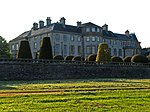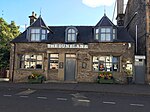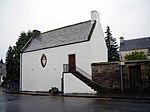Lecropt

Lecropt (Leac Croit in Gaelic) is a rural parish lying to the west of Bridge of Allan, Scotland. The population of the parish of Lecropt is estimated to be around 75, consisting entirely of isolated farms and houses, as well as the Keir Estate owned by the landed Stirling family. Lecropt today contains no town or village, though it lies on the outskirts of the village of Bridge of Allan. Historically, Lecropt's population was higher and was as high as 500 around the year 1800. The decline in population over the decades can be explained partly, but not wholly, by rural depopulation. However, in 1800 Bridge of Allan, then a tiny hamlet of no more than 100 people, was included in Lecropt. As Bridge of Allan grew during the 19th century, the whole village was eventually brought under the adjacent parish of Logie, reducing Lecropt's population. There had also been another village called Lecropt, the site of which was further north-west, on the other side of the line of the M9 motorway from the current parish church. This village hosted the parish church until this was moved to its present site in the early 19th century, on the A9 road. The village of Lecropt itself had been abandoned.
Excerpt from the Wikipedia article Lecropt (License: CC BY-SA 3.0, Authors, Images).Lecropt
Stirling Inverallan
Geographical coordinates (GPS) Address Nearby Places Show on map
Geographical coordinates (GPS)
| Latitude | Longitude |
|---|---|
| N 56.157 ° | E -3.98 ° |
Address
FK9 4PW Stirling, Inverallan
Scotland, United Kingdom
Open on Google Maps









